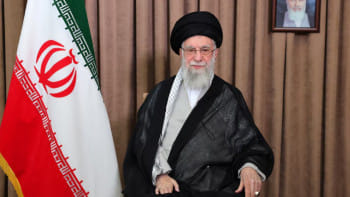Transforming police-citizen relations in Bangladesh

Over 190 years ago, then British Prime Minister Sir Robert Peel articulated a profound insight regarding the police force's relationship with the public, "The ability of the police to perform their duties is dependent upon public approval of police existence, actions, behaviour and the ability of the police to secure and maintain public respect." As Bangladesh struggles to improve its law enforcement system, this insight is crucial. We must radically change police-citizen relations after a history of authoritarianism and governmental domination. Our survival depends on this transition.
Bangladesh's police force has had a history marked by violence, oppression, and a lack of trust. For many years, particularly during military and pseudo-democratic rule, successive regimes used law enforcement as a tool to suppress people instead of protecting their rights. People began seeing the police not as protectors but as possible threats because of this historical backdrop. This view weakened the basic elements of community safety and harmony, making citizens suspicious of the police.
Police in Bangladesh face complex challenges due to a colonial system that used to focus more on control than on serving the community. Real change means a complete shift in how the leaders of this institution think, work, and guide their team. It is important to dismantle rigid systems that block accountability and allow corruption to thrive. Following orders without question is at the root of these problems. The top-down approach forces lower-ranking police officers to follow orders without reasonable queries, which can hinder their ability to make ethical decisions. Workers who are not paid well might view bribery and corruption as ways to get by, making these issues even worse. This cycle hurts public trust and lowers police morale.
By sticking to antiquated enforcement techniques and ignoring community engagement, conflict resolution and respect for human rights, police training often exacerbates problems. Law enforcement personnel and the communities they are supposed to protect are at odds because of this military-style mentality—which was carried over from colonial times—and sees people as possible enemies rather than friends. For the contemporary police to succeed, these problems must be resolved.
The system for holding the police force accountable remains generally weak, with unclear internal disciplinary structures lacking real control. Deficient responsibility erodes public trust in law enforcement and undermines the ethics of police work. A shift from an authoritarian approach to one based on human rights would be significant, recognising past wrongdoings and envisioning a future system based on citizens' rights, privileges and respect. Rethinking the police's role from enforcing state will to protecting people's rights necessitates a strong commitment to transparency and accountability.
The disorder and confusion in the aftermath of the student-led people's uprising in July and August 2024 sparked a new push for police reform. At the head of this important effort is now a reform body, whose job is to bring new life to the correctional services. It's crucial to monitor a few key areas as the police force undergoes changes. Training programmes should shift from traditional military methods to community-based policing, incorporating in-depth human rights, dispute resolution, cultural awareness, and constitutional safeguards, thereby enhancing the effectiveness of police operations.
Independent groups can play an important role in monitoring police misconduct, but they need proper authority and clear guidelines. By providing avenues for public reporting and guaranteeing equitable disciplinary actions, we can rebuild trust. Whistleblowers can share information about wrongdoing without worrying about facing consequences. Getting involved in the community through things like town hall meetings and youth programmes can help police officers become more relatable and build better connections with citizens. These activities aim to alleviate doubt and suspicion between police and citizens, fostering a stronger relationship.
New technologies like video evidence, digital complaint systems, and accessible performance records can enhance accountability in law enforcement. These tools protect citizens from misconduct and officers from false claims, promoting a clearer system where accountability is a standard practice rather than just a goal.
A careful strategy that considers the relationships between police and residents at several levels—including institutions, culture, and individuals—is necessary to address cultural concerns. Service must come before control to respect everyone's basic humanity and rights. Officers who get psychological training may enhance their emotional intelligence and communication abilities, which are essential for fostering relationships in the community.
Reconceiving leadership within police organisations is crucial for ethical conduct and the spread of democratic ideals. Senior leaders should demonstrate ethical behaviour and focus on understanding social processes. The hiring process should focus on ethics, empathy, and a commitment to community service, in addition to skills and education, to create a more reliable and dedicated law enforcement agency. External oversight is important for maintaining checks and balances as independent groups help ensure transparency and accountability. These institutions should set clear guidelines, implement serious consequences for wrongdoing, and promote a culture of honesty in law enforcement.
Culture change in the police force requires long-term dedication and patience. Collaboration is key to improving conditions gradually, rather than relying on immediate solutions. Building trust requires a commitment to moral standards, genuine concern for community issues, and clear organisational changes. Public narratives should portray the police as essential partners in promoting social harmony, rather than distant entities. This shift requires continuous media engagement, educational initiatives, and transparent communication regarding institutional reforms.
Change takes time. Reconnecting police and citizens in Bangladesh will be difficult. Established authority, limited funding, and strong cultural attitudes will hinder reform. We need patience, dedication, and a long-term objective to make this journey successful. Small victories will progressively dispel suspicion. This allows institutions to change significantly.
Building a better relationship between police and citizens is not just something institutions should do—it's a shared responsibility. It requires everyone—law enforcement, political leaders, community members, and citizens—to come together and commit to the cause. The way ahead may be tough, but it needs bravery, understanding, and a strong faith in the possibility of positive change within our institutions.
Dr Habib Zafarullah is adjunct professor of public policy at the University of New England, Australia, and former professor of public administration at Dhaka University. He is the founding president of the South Asian Network for Public Administration (SANPA). He can be reached at [email protected].
Views expressed in this article are the author's own.
Follow The Daily Star Opinion on Facebook for the latest opinions, commentaries and analyses by experts and professionals. To contribute your article or letter to The Daily Star Opinion, see our guidelines for submission.

 For all latest news, follow The Daily Star's Google News channel.
For all latest news, follow The Daily Star's Google News channel. 










Comments